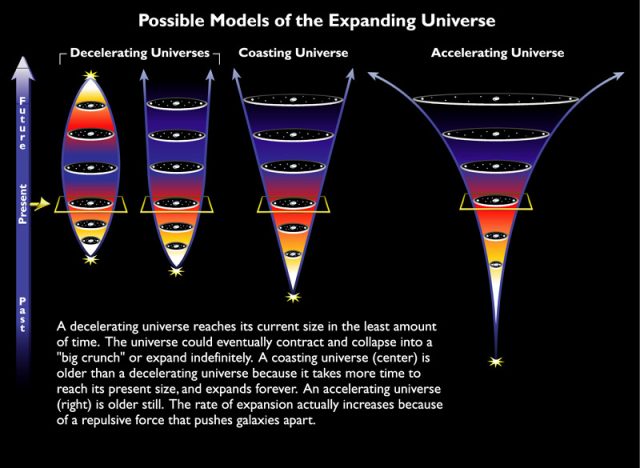Getting the math of the Universe to cancel out
Ars Technica » Scientific Method 2014-03-12
The vacuum of space isn't actually "empty"; it teems with particles that pop in and out of existence, giving the vacuum an energy of its own. But here's an embarrassing fact about that energy: it predicts that the cosmological constant (which provides a measure of the rate of the expansion of the Universe) should be 10120 times larger than we think it actually is.
Most scientists prefer things to be a bit more accurate than this. Still, the main question on cosmologists' minds is not why the predicted and real values appear to be so different, but how it is that the vacuum energy does so little. An answer of sorts has recently appeared in Physical Review Letters. But before we get to the paper, let's delve into the nature of the problem it's trying to solve.
An expanding Universe
When Einstein was first formulating a new theory of gravity, his solutions predicted that the Universe was expanding. At the time, the Universe was widely regarded to be static, so Einstein added a constant that counteracted the expansion and kept the Universe unchanging. Everyone rejoiced—electromagnetism, space, time, and gravity could all live together in harmony.
Read 10 remaining paragraphs | Comments
